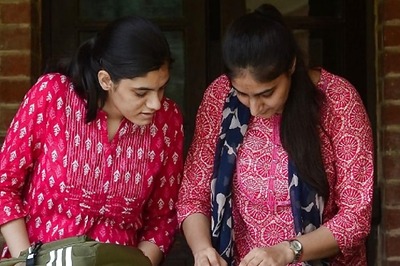
views
With over 10,000 DPIIT-recognised Deep Tech Start-ups, India stands at the height of a transformative era in technological innovation. These start-ups, spanning diverse sectors, represent the vanguard of India’s growing deep tech ecosystem.
As their ingenuity and resilience underscore the nation’s potential to emerge as a global leader in cutting-edge technologies, in a recent statement, Rajesh Kumar Singh, secretary at the Department for Promotion of Industry and Internal Trade (DPIIT), emphasised the imminent finalisation of the National Deep Tech Startup Policy (NDTSP), signalling the government’s unwavering commitment to fostering a conducive environment for deep tech start-ups to thrive.
The government has been diligently crafting the policy to drive the deep tech sector to new heights. A draft of the policy, released for public consultation on July 31 last year, lays down a comprehensive framework to harness advanced research-based inventions across various domains.
In response to the rollout of the policy, industry insiders have provided their perspectives on the potential impact and opportunities it presents for various sectors.
For example, Suyash Singh, co-Founder & CEO of GalaxEye, underscored the policy’s implications for the space sector, expressing optimism about its impact on research and development efforts.
Singh told News18: “The policy’s strong emphasis on supporting research and development (R&D) promises to significantly bolster our capacity for innovation, particularly in advancing satellite technologies such as multi-sensor Earth observation systems and cost-effective solutions for space exploration.”
According to him, the policy’s focus on R&D will advance satellite technology, making it more efficient and cost-effective. He also said: “As an Indian-based company, we expect to benefit from better incentives and discounts, enabling smoother access to global funding. This reinforces our commitment to the ‘Make in India for the World’ ethos.”
Further, he believes that the policy provides a level playing field for Indian start-ups, granting access to global investment opportunities. The CEO of the space tech start-up said: “We anticipate increased attention from global entities, including corporations and venture capitalists, towards the Indian space sector, leading to a rise in capital injection into existing companies and start-ups.”
Soumendra Mohanty, chief strategy officer at Tredence, highlighted the significance of the policy’s provisions for promoting access to anonymised datasets, stating: “The policy includes provisions that promote access to anonymised datasets, giving companies like Tredence several advantages.”
He stated that as the policy encourages partnership opportunities with industry, academia, and research organisations, the collaborations enable diverse perspectives, deeper insights, and best practices, driving ground-breaking advancements in AI.
Dr Jay Prakash, CEO & co-founder at Silence Laboratories, provided insights into the policy’s role in promoting ethical technology development. He emphasised the need for policy frameworks that encourage responsible innovation and safeguard intellectual property rights in domains such as cryptography.
Additionally, Dr Gopichand Katragadda, founder and CEO of Myelin Foundry, highlighted the importance of collaboration between academia and industry in fostering a skilled workforce proficient in AI algorithms. According to him: “India should aspire to create 100 million AI jobs within the next decade given the vast potential of AI and machine learning. A significant proportion of these jobs, around 70 per cent, should ideally be aimed at rural areas, focusing on data creation and annotation.”
“About 20 per cent of these opportunities could be in start-ups and emerging enterprises, which are crucibles for innovation, particularly in application development. The remaining 10 per cent could be in the realm of large companies and universities, focusing on the intricate task of algorithm development,” he added.
He stated that the policy’s focus on shared infrastructure addresses a key challenge in AI — the high computational resource requirements. Today, developing complex AI models, especially large language models, demands substantial computational power, posing a barrier for start-ups and researchers.
He further noted that by investing in this, the government levels the playing field, allowing innovators nationwide to experiment with sophisticated AI models without prohibitive costs. This investment is crucial for India to lead the global AI landscape. Shared infrastructure can accelerate innovation and development in AI, including edge computing, by providing necessary tools and resources to a wider audience.
Similarly, Vishesh Rajaram, managing partner at Speciale Invest, expressed enthusiasm for the policy’s potential to catalyse innovation across various sectors. He said: “The policy is a major step in the country’s quest for self-reliance and making India a global hotbed for deep tech innovation.” He emphasised the importance of guiding frameworks around funding access, IP creation, and talent access in driving cutting-edge innovation in sectors such as space tech, life sciences, semiconductors, and AI.
These insights underscore the transformative potential of India’s National Deep Tech Start-up Policy, providing a roadmap for fostering innovation, driving economic growth, and propelling India’s emergence as a global leader in deep tech innovation across diverse sectors.




















Comments
0 comment